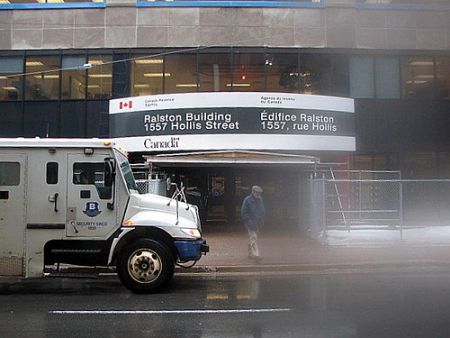All political parties favour lowering taxes, at least in principle. Indeed, conventional wisdom is that saying otherwise is a sure road to political oblivion.
Nova Scotians for Tax Fairness is an organization that argues things are a bit more complicated. It believes that higher taxes are not necessarily a bad thing. After all, taxes pay for public services, things like schools, hospitals and roads.
This is why the group thinks that lowering the HST, as both the NDP and the Progressive Conservatives intend to do, is premature. The group also argues that some of the current taxation practices unfairly benefit the rich and should be changed.
“The more comprehensive public services you have, the better off everybody is,” says Brian Gifford, one of the founding members of the group. “This helps people at all income levels, but it helps people at low income levels most."
"Take education for instance. If you have a real high quality education and childcare system than children of low income families have a much better chance of gaining the skills to participate fully in the economy and get good jobs.”
Education is just one example. Gifford points to universal pharmacare, a guaranteed annual income, and help for low income Nova Scotians in paying their power bills as others.
Of course, conventional wisdom tells us high taxes scare away entrepreneurs and residents alike.
Not so, says Gifford, referring to studies that show Nova Scotia as altogether competitive despite having high taxes. “People go on about taxes, the fact is that the cost of business is lower here because of the low cost of property and low rents and so on.”
No discussion on taxes would be complete without touching on deficits and balanced budgets.
Over the last four years austerity has been a recurring theme and we have seen restraint in education, health care, social services and many other programs, all so as to keep taxes low and still balance the budget.
Gifford thinks it is wrong to look at the straight dollar value of the debt. What matters is debt relative to the Gross Domestic Product (GDP), the total value of goods and services produced within a given period. GDP is used to measure a society's productivity.
“In Nova Scotia in 2000 our debt to GDP was 49%, it is now about 36%, the more the economy grows the more debt you can handle,” says Gifford, adding that current low interest rates also make the debt more manageable.
“The percentage of the Nova Scotia budget that has gone to paying down the debt every year went from a high of 19% in 2002 to just under 10%,” says Gifford. “But people are still saying we are bankrupting the province and it is just total bs.”
This election the big tax topic is the HST, in particular how the NDP raised the HST by two percentage points in its first year in government, and how it now intends to cut the HST back by one percent in both 2014 and 2015.
At a St. Mary's forum on social justice and women's equality issues Maureen MacDonald, the current minister of finance, reiterated the party's commitment to lowering the HST. She also explained how she expects to make up for the revenue loss.
“Our position is that the economy will improve, it is improving, it is a slow recovery but all the major financial institutions say Nova Scotia's economic growth will put us in the middle of the pack of provinces next year,” said MacDonald.
The Progressive Conservative party supports the HST reduction, [while] the Liberals will only commit to reducing the HST when the time is right and the revenues are there.
Gifford believes the Liberal position is the more reasonable approach. “When they cut the HST by two percentage points, that will remove over $350 million each year from government finances. That is a lot of money,” says Gifford.
Gifford and the Nova Scotians for Tax Fairness are suggesting other means as well to raise additional revenues and increase fairness.
For instance, Gifford strongly supports the fifth tax bracket introduced as a temporary measure by former finance minister Graham Steele in 2010. This bracket sees well-off Nova Scotians earning more than $150,000 pay 21% provincial income tax.
“We would like to see an additional bracket, for people earning more than $375,000 or maybe $500,000,” says Gifford. “When you get executives from Nova Scotia Power who are earning over a million dollar a year, then that's the kind of salary where it makes sense for them to contribute more to society.”
In 2012 Chris Huskilson, the head of Nova Scotia Power's parent company, earned over $3-million in salaries, stock options and bonus payments.
According to this year's Alternative Budget, published by the Canadian Centre for Policy Alternatives, over 60% of capital gains go to 1% of the population. Information on stock options isn’t available, but they also tend to go to highly paid executives



